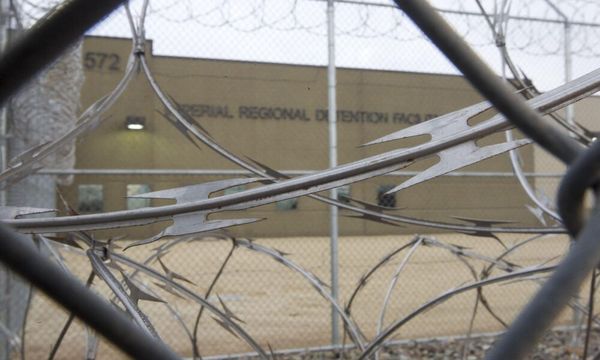
More than three years on and the world still doesn’t know why Prince Andrew did it. Why he agreed, consciously and deliberately, to be interviewed by Emily Maitlis on his friendship with the man Andrew called, in his first answer in the famous broadcast, “Mr Epstein”. Andrew: The Problem Prince on Channel 4 seeks to find some answers to that question, one that perplexes and haunts his family, even as the coronation of a new king is at hand.
Given that it is unlikely that Andrew himself will ever tell us – though we now know he can be quite unpredictable – this is the closest we are going to get to the truth. The first episode of this series chronicles Andrew’s upbringing and how he became the man he is, the second is where the meaty revelations about the Newsnight fiasco can be found. Like the original interview, these first-hand accounts, telling the story of how the interview was won, so to speak, are strangely mesmerising. Primarily through the testimony of Maitlis and her colleague Sam McAlister, who tirelessly worked on getting the booking for BBC Newsnight, plus "friends” of Andrew, lawyers for Jeffrey Epstein’s victims and Andrew’s own libel lawyer, we gain some insight into the background to that interview, and what was going through the Duke of York’s mind. McAlister and Maitlis’s mega-scoop still leaves one slack-jawed.
Like “Frost-Nixon”, David Frost’s celebrated post-Watergate interview with Richard Nixon in 1977, also a televisual landmark, or the (albeit part-discredited) Diana interview with Martin Bashir, what we might now call Maitlis-Andrew is spawning its own meta material, about the background story and the tensions behind the scenes – and justifiably so. Frankly, every journalist in the world is envious of what the pair managed to achieve, and everyone is fascinated by how they did it. It’s greatly to Maitlis’s credit that she shares the glory with McAlister.
The most intriguing theory about Andrew’s self-immolation is offered by Maitlis, who’d never met the man before. After years of negotiations, she and McAlister were finally invited to “pitch at the Palace”, to borrow a phrase, with the Duke of York himself. He “bounded in”, she says, with that sort of boyish confidence that the world once found so charming, and then mentioned to the journalists that he hoped they didn’t mind that “I’ve brought someone with me". McAlister admits that she inwardly groaned that the Duke was about to introduce them to some hot-shot lawyer, who’d kill the project stone dead. But no. In popped his daughter, Princess Beatrice of York, then 31 years of age and, whatever else, not well-versed in the dark arts of media management. Andrew, apparently without much input from Beatrice, then proceeded to rehearse some of the most ridiculous things anyone in public life has ever said. He asked Maitlis, as if teeing up an amusing anecdote over dinner: "Shall I tell you why I can’t sweat?”. Maitlis, controlling her own adrenaline rush, indicated she’d very much like to hear all about that. And, with a knowing final hint that he’d need “final approval” from an ultimate regal authority, the deed was done.
It was also at this point in the story, when Bea turned up, that it crossed Maitlis’s mind that Andrew was possibly “doing it for her” – trying to clear the family name so that his reported digressions wouldn’t get in the way of Beatrice’s and sister Eugenie’s future happiness and success. We do know that Andrew dearly hoped that his daughters could become “working royals”, despite Charles’s reluctance; they could not possibly do that if daddy (as well as mummy) was disgraced.
If Andrew was acting for his daughters, then it was the Newsnight interview, rather than the way he took his time over ditching his friendship with Epstein, that was the “honourable” thing. Arguably. Foolish and counterproductive, and enormously risky as it turned out, on this reading he did the interview in a spirit of paternal loyalty. The fact that it made matters infinitely worse doesn’t affect the possibility of a noble motive. But, as we all know, it did make matters worse. His own lawyer was totally opposed to it and says he still doesn’t understand why he did it; on the other side of the Atlantic, and of the legal case, Virginia Giuffre’s attorney recalls her delight when Andrew handed them a series of “easily disprovable”, and implausible, assertions.
The deeper origins of Andrew’s downfall are explored through the archive-rich biographical material that pads out the various witness statements, reconstructions and short clips from the interview itself. Andrew was, by common consent, his mother’s favourite. He was so spoiled he got a hand-made one-off baby James Bond pedal car made for him by Aston Martin when he was five, costing £4,000 (about £63,000 now). No one ever said “no” to him. He mistook sycophancy for respect. He had a touch of his father’s overbearing self-assurance about him, and thought he’d be able to defuse the troublesome allegations, at that point far from overwhelming him. Maybe it was for the sake of his family, and himself, and there’s also a hint that he had something to prove to his elder brother, and to put the then future king in his debt for clearing up the Epstein mess that he, Andrew, had created.

As we see in the historical sections of the two-parter, the public had affectionately feted the prince for years as "Randy Andy", the Falklands war hero. He seemed a more attractive version of his soppy elder brother, including to the Queen and Prince Philip, and Andrew, UK trade envoy, was accustomed to thinking himself a popular, persuasive dealmaker. Fearful he’d lose in a court of law, he used Newsnight to get the case transferred to the court of public opinion, and the accusations dismissed. Instead, he cast an unsympathetic figure trying to pitch a series of alibis that merely invited scepticism and mockery. It wasn’t that he thought Maitlis would be a soft touch he could flirt with, as we see him doing with Selina Scott on a talk show in 1985; it was because he thought that even as able a journalist as Maitlis wouldn’t get the better of him. We also see just how easily Epstein manipulated him, even as he thought he was using Epstein. The Duke was a dupe.
Or at least that is how it all seems from the outside and at this distance. How it really seemed from the prince’s point of view back in 2019 and before we will never know. Perhaps neither will he; Andrew too may not fully understand how he ended up in Epstein’s orbit, and subsequently blundered into what one US network called a "plane crashing into an oil tanker causing a tsunami" category of a car-crash interview. At any rate, this is the nearest we will likely ever get to Maitlis-Andrew: The Sequel.







